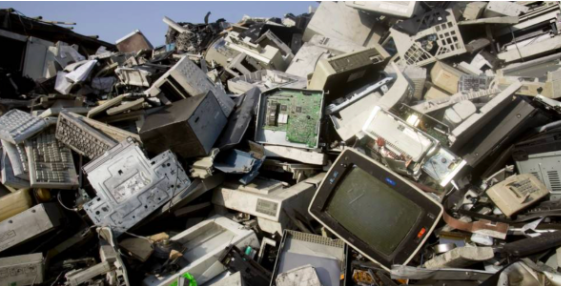Electronic Recycling is all about changing the way we do business by reducing the amount of electronic waste being produced and sent to the landfill. It is also about making sure that the environmental impact of electronic waste is reduced as much as possible. In this respect, electronic recycling is more than just about “keeping up with the Joneses.” Electronic waste is defined as any substance, part, or product that is discarded or used up in the manufacturing of commercial or residential products or services. Electronic waste also comprises materials that will be reused through an electronic recycling process, which covers electronic items which will be resold, reused, salvaged, recycled, or disposed of.
The electronic recycling industry is growing at a rapid pace all over the world, as countries across the globe struggle to reduce their annual electronic waste output. Countries such as the US, Japan, China, India, and the European Union have joined together to form the Basel Convention on Biodiesel and Chemicals, in an effort to move towards a paper-free world and reduce the amount of e-waste to a manageable level. However, the Basel Convention only provides guidelines and does not regulate the export of electronic waste or establish a nationwide standard for e-waste disposal. The European Union is leading the world in its attempt to strengthen the ban on sending electronic waste to developing countries, and it has set a goal of reducing e-waste by 40 percent by 2021.
Electronic recycling in developing countries is a cause for concern, since most of the toxic chemicals used in the manufacture of electronic products are manufactured in the countries’ primary industrial hubs, where very little effort is put into traceability or accountability. The hazardous substances in electronic waste from developing countries often contain lead, mercury, cadmium, chromium, and other dangerous compounds that can prove very harmful to humans, especially when exposed to them over long periods of time. These hazardous substances often Leach into the soil and contaminate drinking water, putting the local residents of these areas at risk of ingesting them.
Electronic recyclers are responsible for removing these toxins and making them available for re-use or recycling by the people who need them the most. E-Waste accounts for more than twenty-five tons of discarded electronic waste every year, with two thirds of this amount originating from developing countries. Of this amount, almost half is in the form of batteries, and one-sixth of it is in the form of printed circuit boards (PCBs) that contain semiconductor chips. It is estimated that the manufacture of PCBs takes about two tons of precious metals, including gold and silver, and another ton of non-precious metals.
Manufacturing plants fail to properly monitor the flow of raw materials through the plants, leading to huge discrepancies between the final product and the original input requirements, causing tremendous strain on the environment. It is widely believed that such strain is directly responsible for the elevated levels of toxic chemicals that cause global warming, leading to the growing threats posed by climate change and the growing environmental damage that is occurring. By eliminating e-waste from the supply chain, we are in effect reducing the overall impact of electronic waste on the environment.
The effects of improper global e-waste management are felt in many different ways, most significantly by the reduced use of non-reusable electronics in consumer electronic devices and in electronic waste collection and disposition. A properly managed e-waste stream minimizes the adverse environmental impact of electronic waste, but even the best-managed system will not be able to eliminate all the electronic waste that is produced in the world. In fact, there is now more than enough waste from electronic manufacturing plants to go around, and even the reduction of every single electronic waste piece would still leave a large sum of waste in the environment that would cause significant harm to the ecosystems. Therefore, it is highly recommended that every company that produces electronic products seriously consider using e-waste reduction as an additional method of managing their e-waste. Not only will it significantly reduce the environmental impact of electronic waste, but it will also allow these companies to utilize more resources to create new and improved devices, while also helping to improve the environment.
This post was written by Steven Elia Co-Founder and Recycling Director at eCycle Florida. eCycle Florida is a R2 Certified electronics recycling company in the state of Florida. Our processes and procedures are dedicated to the proper destruction and recycling of your electronics. eCycle Florida is your go-to for Orlando electronics recycling.




